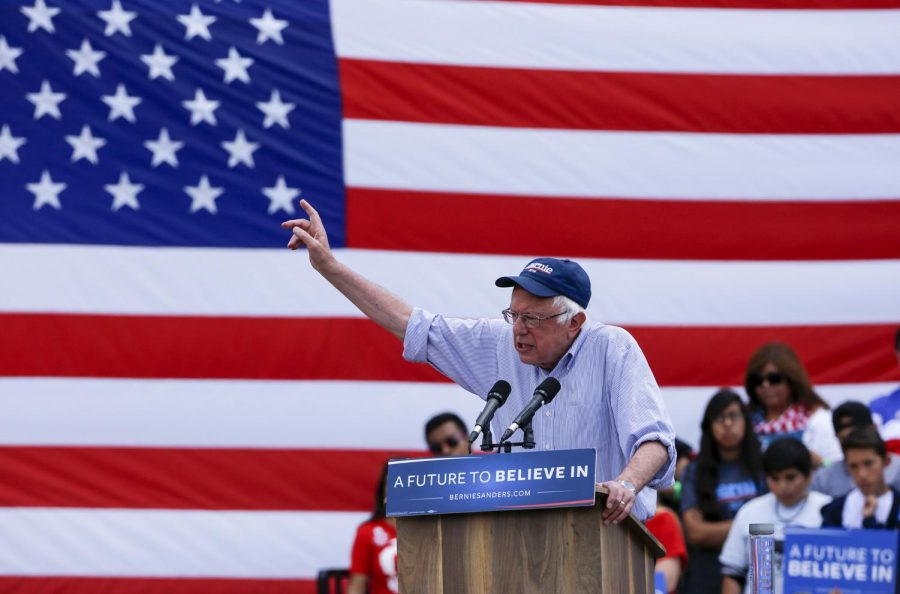Presidential candidates for 2020 have a lot to fix in US government
Sen. Bernie Sanders was elected to the Senate in 2006 and won re-election in 2012 and 2018, running as an independent candidate. Columnist Agastya stresses the importance of accepting social change in the upcoming presidential election.
February 28, 2019
The race for the 2020 presidential election has begun, and the current establishment has everything to lose. As the list of high-profile Democrats entering the fray grows, an ideology sidelined as radical in the 2016 primaries is more apparent than ever: democratic socialism. Bernie Sanders’ ‘“unrealistic’” and “‘un-American’” ideas are now, without question, on the forefront of many candidate’s platforms, and examining why this is happening in the country which essentially defined modern capitalism is telling.
The United States is one of the wealthiest countries on Earth. It has the world’s most powerful military, and the idea of American exceptionalism has permeated far beyond its own borders. In the context of more economically developed countries, however, Americans do not lead good lives. With one of the highest poverty rates in the developed world, America’s prosperity scorecard does not read like one befitting of the current world hegemony. Economic woes are not the only statistic which point toward this fact: dangerously high obesity rates, average to below average literacy, lower life expectancies and medical costs so high that people are dying before they can afford to pay them. It all paints a bleak picture of the well-being in America. Still, the U.S. is a high-spending, high-productivity nation, with some of the highest number of hours worked a week. These problems are obviously not a product of complacency.
While the issue of poverty in the U.S. is an incredibly complex one, with no cut-and-dry analysis, significant responsibility lies in a failure of social security and policy. Saturated with laws and policies which further wealth disparity, the U.S., unlike its many economic counterparts in the developed world, has been unable to institutionalize equality. It is for good reason the U.S. has earned the moniker of a “reluctant welfare state.” Despite popular belief that the federal government overspends on welfare programs and aid, the social safety net in the U.S. is one of the most limited in scope amongst developed nations; it shows, in tragic numbers.
With these figures in mind, it becomes clearer as to why these “radically leftist” ideas are permeating into the mainstream. The late-stage capitalism America finds itself in is not working for its people anymore, and the idea of a free market has been destroyed by the ironic ascension of the monopolies which run the nation. The answers to these problems certainly do not lie in the abolishment of capitalism, but growing frustration in the system, as well as the recent championing of democratic-socialist ideas toward an increasingly certain reality: American capitalism needs to fix itself and evolve.
Will Bernie Sanders or Alexandria Ocasio-Cortez provide a cure-all to these issues? It’s unlikely. But many of the ideas they fight for, including higher taxation for the wealthy, more robust social security and a drastic move toward renewables is something the U.S. will have to embrace sooner or later. The argument for the collective betterment of society is a convincing one, whether it’s driven by a simple kind-heartedness toward humanity, or by egoistic altruism.
Get The Daily Illini in your inbox!
When some of us are made better off, eventually everyone is — Isn’t that what progress as a nation really is about?
Agastya is a sophomore in Engineering.







